Displaying items by tag: Kite Surf Pro
Achill Island Attracts Kitesurfers The World Over
#Kitesurfing - “There’s loads of special places in the world, but none of them are Achill,” says kitesurfing instructor Francois Colussi. “There’s something magical here.”
And if this article from TNT Magazine is anything to go by, you'll be sure to agree.
The writer recently spent a short break on the weather-worn but ruggedly beautiful island in Co Mayo that has in recent years become a winter haven for kitesurfers the world over - drawn to the winds and waves that made it the perfect choice to host the Aer Lingus Kite Surf Pro in October.
Those are the same qualities that brought in Frenchman Colussi, who has since turned a former local pub near Keel beach into kitesurfing school Pure Magic.
Indeed, you don’t have to be a professional to kitesurf in Keel. “It’s one of the most extreme sports, but the most accessible. It’s much easier that surfing or windsurfing. You can learn in a weekend,” Colussi tells TNT. “You don’t need huge upper body strength – you’re powered by the wind.”
Even so, at this time of year it's a place for the hardier souls, as Welsh world champ Kirsty Jones describes: “The ocean is pure, Atlantic water. You feel a slap in the face like – Yes! I’m alive!”
TNT Magazine has more on the story HERE.
Ireland to Showcase 'Planet's Biggest Waves' on 2012 Kite Surf Tour
#KITESURFING - Ireland will be one of four stops on the 2012 Kite Surf Pro World Championship Tour to decide the best wave kitesurfers in the world, Surfer Today reports.
Kicking off in Cascais, Portugal in June before heading to Mauritius in September, the tour will come to Ireland's west coast - described as "Europe's secret kite surfing jewel and home to one of the planet's biggest waves" - from 19-28 October.
According to Surfer Today: "Ireland's Kite Surf Pro will incorporate a unique mobile format, capable of showcasing each day's action at the choicest of locations on the country's wild and swell-abundant west coast."
The tour will wrap up in Maui, Hawaii from 29 November to 8 December, where the €15,000 prize purse wil be up for grabs at the famed surfing venue of Ho'okipa.
Surfer Today has more on the story HERE.































































